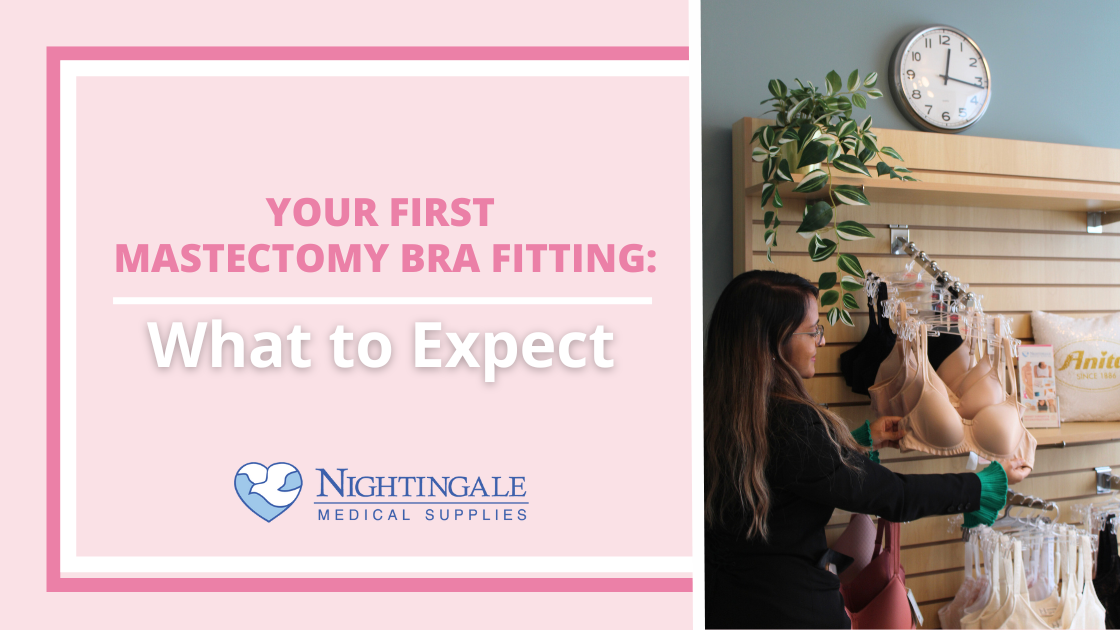
Your First Mastectomy Bra Fitting: What to Expect
Discover what to expect at your first mastectomy bra fitting with Nightingale Medical’s certified fitters—comfort, support, and care every step of the way.
Welcome to our new website!
Previous accounts have not transferred - new accounts can be created at any time.
Due to the ongoing Canada Post strike, orders will be shipped using alternative couriers.
Delivery times may be affected, and we are unable to deliver to PO boxes.
For questions or concerns, contact our customer service team.
You're away from free shipping
Congrats! You unlocked free shipping.
Your cart is empty
Shop allCart updated ()

A lumpectomy is a breast-conserving surgical procedure commonly used to treat early-stage breast cancer. Unlike a mastectomy, which involves the removal of the entire breast, a lumpectomy involves the removal of only the tumor and a small margin of surrounding healthy tissue. This surgery is often preferred for women diagnosed with breast cancer, as it allows them to retain the majority of the breast while still addressing the cancerous growth.
Lumpectomy is usually followed by radiation therapy to destroy any remaining cancer cells that may be undetected. In some cases, if the cancer is found to be hormone receptor-positive, hormonal therapy may also be recommended.
Recovering from a lumpectomy is typically less intense than a mastectomy, but it still requires attention to both physical and emotional well-being. Recovery can vary depending on factors like the extent of surgery and whether additional treatments such as radiation or chemotherapy are involved.

A lumpectomy is a breast-conserving surgery that allows for effective cancer treatment while preserving most of the breast tissue. While recovery may be less intensive than a mastectomy, it’s important to take the necessary steps for both physical healing and emotional support.
Choosing the right post-surgery bras and working with a mastectomy fitter can significantly improve comfort and confidence during recovery.
Navigate every stage of your breast care journey with expert guidance and support.
We provide free NSWOC Consultations at six of our locations in British Columbia. Contact us to book an appointment.
Learn MoreWe have 8 locations in BC, visit us in Vancouver, Langley, White Rock, Victoria, Kamloops, Vernon or Kelowna for convenient access to our products.
See Our Locations
Discover what to expect at your first mastectomy bra fitting with Nightingale Medical’s certified fitters—comfort, support, and care every step of the way.
For individuals who have undergone a mastectomy, finding the right bra is essential for comfort, confidence, and support. Unlike regular bras, mastectomy bras...

This holiday season, give the gift of health, comfort, and confidence! Whether you’re shopping for someone special or treating yourself, we’ve curated a thoughtful selection...
. Discount code automatically applied at checkout.
Error